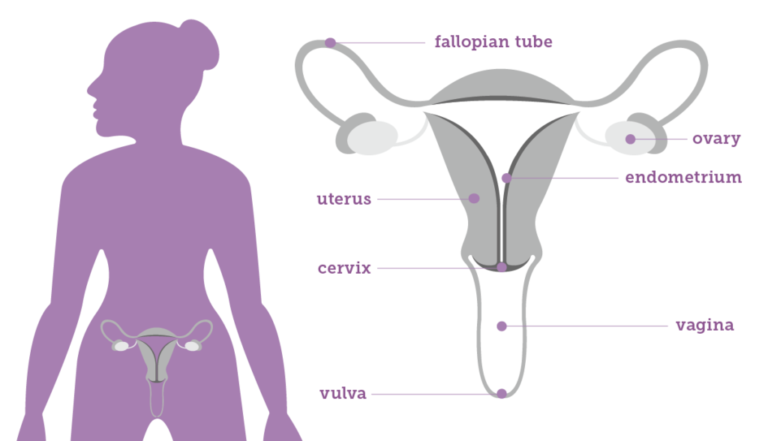By Renee Cowan, MD, MPH
Gynecological Oncologist, Women’s Hospital
You’ve probably heard a lot in the mainstream news and social media about breast cancer. Chances are you know someone who has experienced it and/or has been educated on the importance of mammography. While breast cancer it is a major women’s health concern and is the leading new cancer diagnosis in women, did you know that there are other cancers that women are at risk of developing?
More than 100,000 women are diagnosed with gynecologic, or GYN, cancer in the United States each year. Genital cancer includes any cancer that starts in a woman’s reproductive organs including the cervix, uterus, fallopian tubes, ovaries, vagina and vulva. Uterine cancers are the 4th most common cancer diagnosis in women each year, while ovarian cancers are the 5th leading cause of cancer deaths in women. While there is no surefire way to prevent these types of cancer, there are some steps you can take to reduce your risk and increase your awareness.
Live a healthy lifestyle
The best thing a woman can do to protect herself from a gynecological cancer or any cancer is to live an overall healthy lifestyle. All the things we’re constantly told to do — eat lots of vegetables, get enough sleep, reduce stress, avoid smoking, minimize alcohol consumption, exercise regularly, maintain a healthy body weight — these are the things that increase your health and reduce the chance of cancer in general. However, this is especially important when it comes to gynecological cancer, because obesity causes increased estrogen production and chronic inflammation, which increases the risk of the most common gynecological cancer, endometrial cancer (cancer of the lining of the uterus).
Know your normal
When it comes to women’s health, it can be hard to know what’s normal and what’s not. No one knows your body better than you, so it’s important to pay attention and know your normal so you can recognize when and if something isn’t working. Each type of cancer has different symptoms and some of them can be very vague or non-specific, but bloating, pain/pressure, feeling full too quickly and unusual bleeding are some common warning signs to watch for. Since there’s no simple, reliable way to screen for most gynecological cancers other than cervical cancer, it’s especially important to know the warning signs and talk to your doctor if something doesn’t feel right. Here are some red flags that warrant calling your doctor right away: vaginal bleeding after menopause, bleeding after intercourse, foul-smelling vaginal discharge, an increasing pelvic mass, or fibroids that grow significantly after menopause.
Know your family history
You may have heard that cancers can run in families, and this is true. Multiple GYN cancers may be related to your DNA or genes. Try to know your family history and what cancers your family members may have had. Depending on your family history, especially if there are multiple family members who have suffered from breast and ovarian or colon and uterine cancer, you may be eligible for genetic testing. Genetic testing can seem scary, but often revealing genetic abnormalities can help your doctor recommend a treatment or surveillance plan that could prevent a cancer from developing or attacking in its early stages.
Regular preventive examinations and gynecological examinations
- Pap test: Cervical cancer is the only gynecological cancer with reliable screening. A Pap test or smear is a procedure used to collect cells from the cervix so that they can be carefully examined in the laboratory to find cancerous and precancerous cells. If precancerous lesions are found, they can be removed before they develop into cancer. Pap smear guidelines change frequently as we learn more about the disease process, but they usually start around age 21 and are performed every 3-5 years. Be sure to consult your gynecologist and visit them every year.
- HPV Test: The HPV test, often performed at the same time as the Pap test, looks for infection with high-risk HPV types that are more likely to cause precancerous and cervical cancers. Likewise, guidelines are evolving, so be sure to check with your gynecologist. In addition, there are several HPV vaccines available that offer protection against many of the strains of HPV that are responsible for causing cancer.
- Pelvic Examinations: We can’t say this enough–See your gynecologist regularly for checkups! Although pelvic exams can be uncomfortable, a thorough annual exam can detect precancerous lesions of the vulva, vagina, or cervix, or a mass in your pelvis that is new and/or growing and shouldn’t be there. A thorough history (or discussion with your doctor) can reveal abnormal or postmenopausal bleeding that your doctor can treat right away.
To learn more about Gynecologic Oncology or the Gynecologic Oncology team, visit our website. And most importantly, if you or any woman you know is concerned about cancer or a WOMEN symptom, talk to your primary care doctor or gynecologist right away or make an appointment with one of ours!
